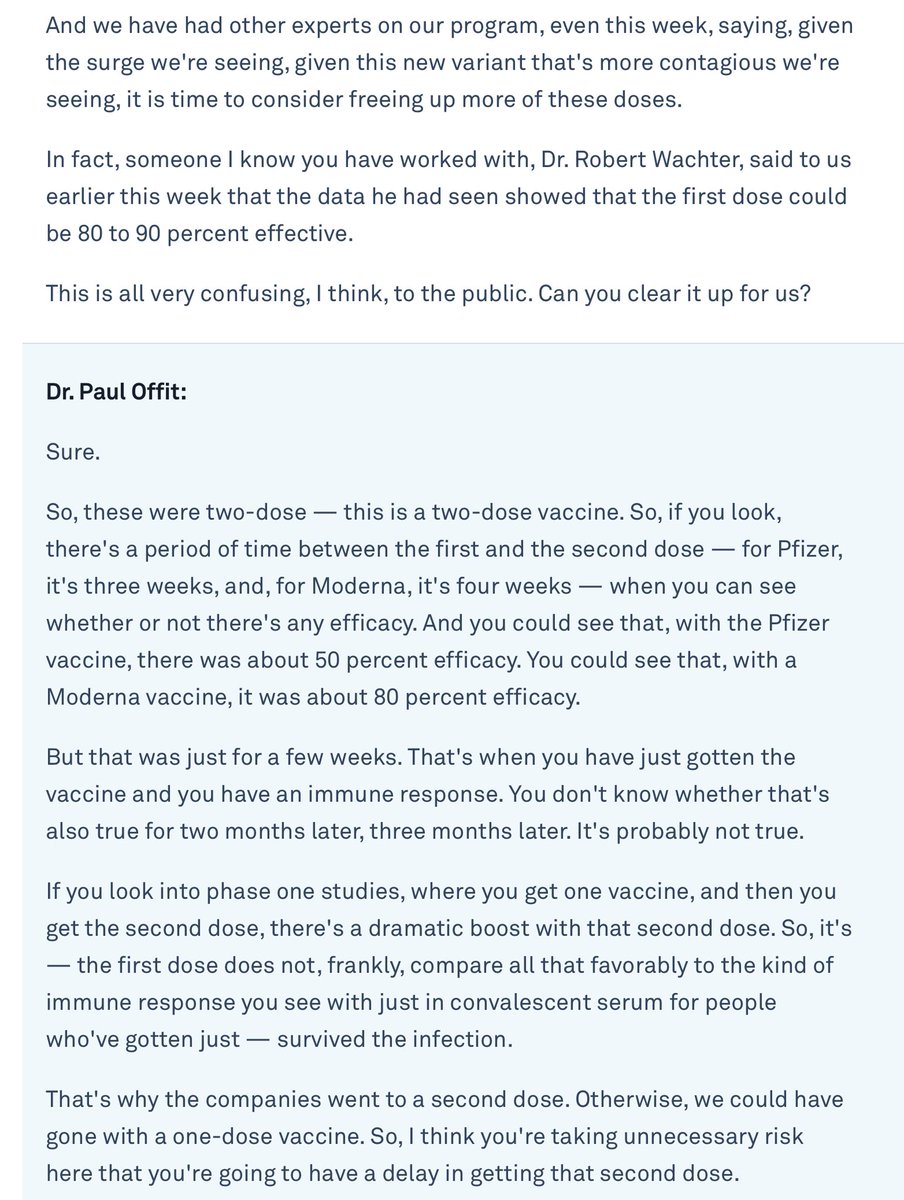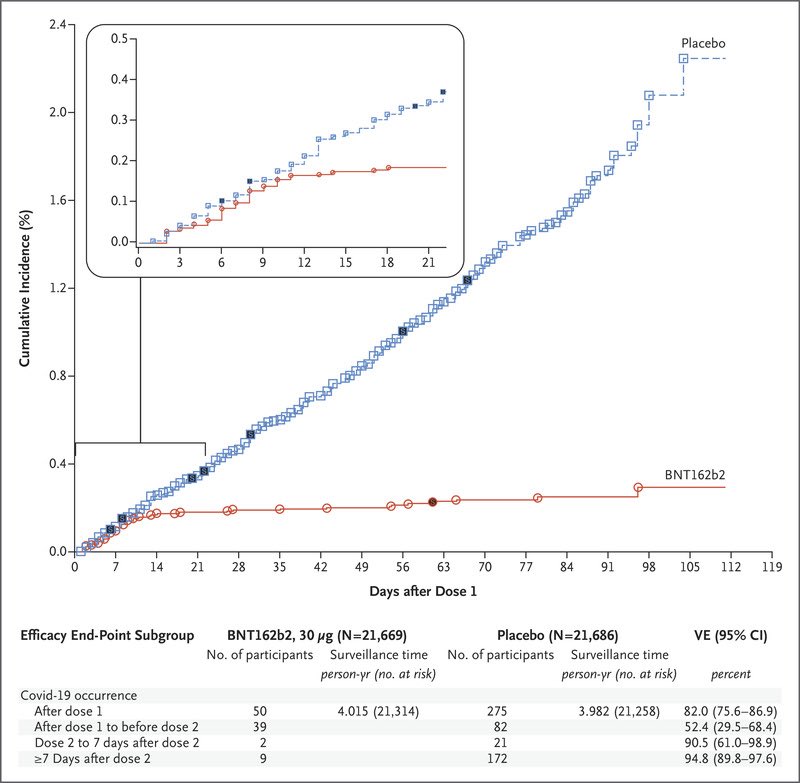
@gordonchree The Edinburgh University data adds NO justification to the 12 week strategy for the Pfizer vaccine.
We know the 1st dose has an immediate effect that is measurable 12 days after vaccination.
We do NOT know for how long it is sustained.
We know the 1st dose has an immediate effect that is measurable 12 days after vaccination.
We do NOT know for how long it is sustained.
We do NOT know what effect a 2nd dose will have when given after 12 weeks, if the 1st dose has declined significantly.
Pfizer have opposed the UK strategy and Pfizer should know a thing or two about the vaccine they designed and tested.
Pfizer have opposed the UK strategy and Pfizer should know a thing or two about the vaccine they designed and tested.

There is no evidence relating to sustained efficacy of a single Pfizer dose to 84 days.
An earlier Pfizer paper (in Nature) shows the 2nd dose (given at Day 21) boosts antibody levels by 900% or 1800% (according to dose), by Day 28.
A single dose declined by 30% by Day 28.
An earlier Pfizer paper (in Nature) shows the 2nd dose (given at Day 21) boosts antibody levels by 900% or 1800% (according to dose), by Day 28.
A single dose declined by 30% by Day 28.

Additionally, neutralising antibodies only appeared in any significant numbers days AFTER the 2nd Pfizer dose was given.
Pfizer analysis on the FDA website shows a MUCH weaker immune response among the 65-85 age group, relative to the 18-55 age group.
It also shows the 2nd dose (at Day 21) has a much stronger effect on the 65-85 age group.
It also shows the 2nd dose (at Day 21) has a much stronger effect on the 65-85 age group.
https://twitter.com/kennymathieson/status/1356276520055148551
There IS data to support a 12 week delay for the Ox-AZ vaccine.
mRNA vaccines are new, they should be used with caution, especially where the lives of the most vulnerable are concerned.
mRNA vaccines are new, they should be used with caution, especially where the lives of the most vulnerable are concerned.
• • •
Missing some Tweet in this thread? You can try to
force a refresh




